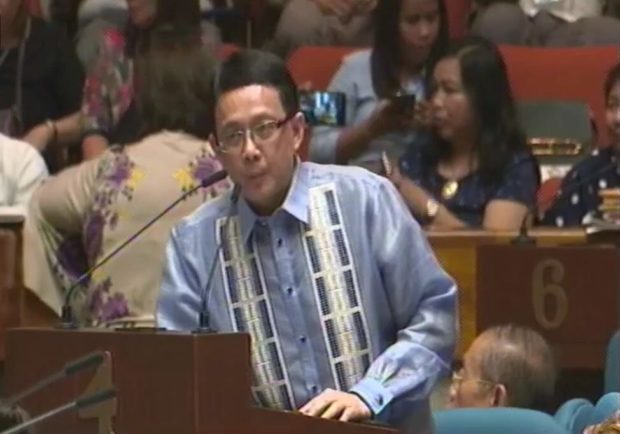
Northern Samar Rep. Paul Daza. (INQUIRER.net file photo)
MANILA, Philippines — Implementing the law simplifying adoption will give a lot of families and children better chances in life, Northern Samar 1st District Rep. Paul Daza said in a statement on Wednesday.
According to Daza, the Domestic Administrative Adoption and Alternative Child Care Act (Republic Act No. 11642), which was signed in January 2022, fixes old problems in adopting children.
“Through RA 11642, we are correcting age-old problems in adoption — which typically took years to resolve. The previous law, RA 8552 (Domestic Adoption Act of 1998), required a set of procedures — while founded on good intents — that often lead to emotional and financial strains on parties involved, not to mention clogging of cases in courts,” Daza said.
“Not only are we building better chances for families and children, we are also ensuring clear procedures for helping abused or neglected children. Children in these difficult circumstances need the society’s concerted efforts,” he added.
Daza issued the statement after the Department of Social Welfare and Development (DSWD) launched the Omnibus Guidelines on R.A. No. 11642 in a program earlier.
According to Daza, the bill would do away with adoption procedures that used to take years.
This was one of the reasons why several senators in the 18th Congress urged then-President Rodrigo Duterte to sign the law, as it shortens the waiting time for adoptive parents from six to nine years to less than a year.
With the changes, the law aims to attract more families to adoption as an alternative to having children.
Daza also noted that the law expanded its coverage, aiming not only to ensure the welfare of adopted children but also the living conditions of children in traditional families.
He also highlighted that the law had provisions against discrimination, prohibiting actions that would shame or bully adopted children.
“This legislation is also for them. We do not only wish to match prospective parents with prospective children; we also wish to ensure that all Filipino children are living in homes that are truly safe and loving. We thank Secretary Rex Gatchalian and Undersecretary Janella Ejercito Estrada of the National Authority for Child Care (NACC) for expediting the release of the Omnibus Guidelines,” Daza said.
“These are important considerations when we deliberated on the law. Through Section 54, we are prohibiting labeling, shaming, bullying, and other discriminatory acts that might be committed against adopted children. We are taking this seriously because we truly understand the long-term effects of bullying and shaming in a world that is sometimes harsh,” he added.